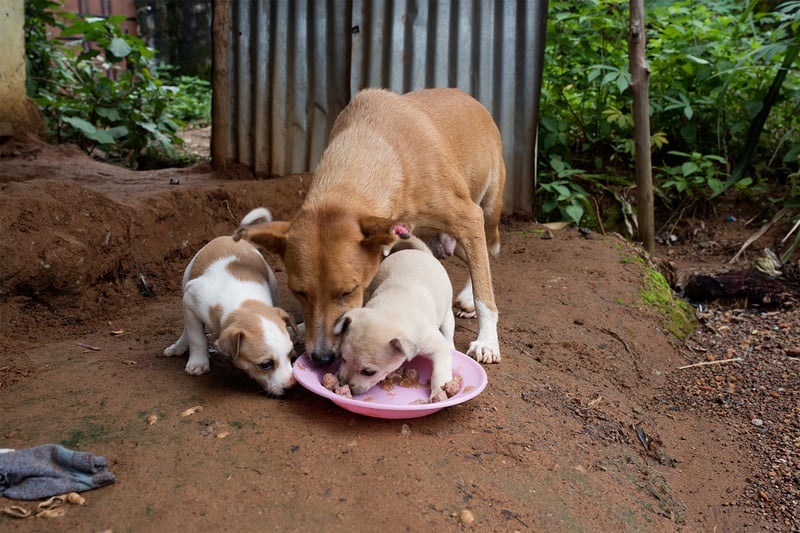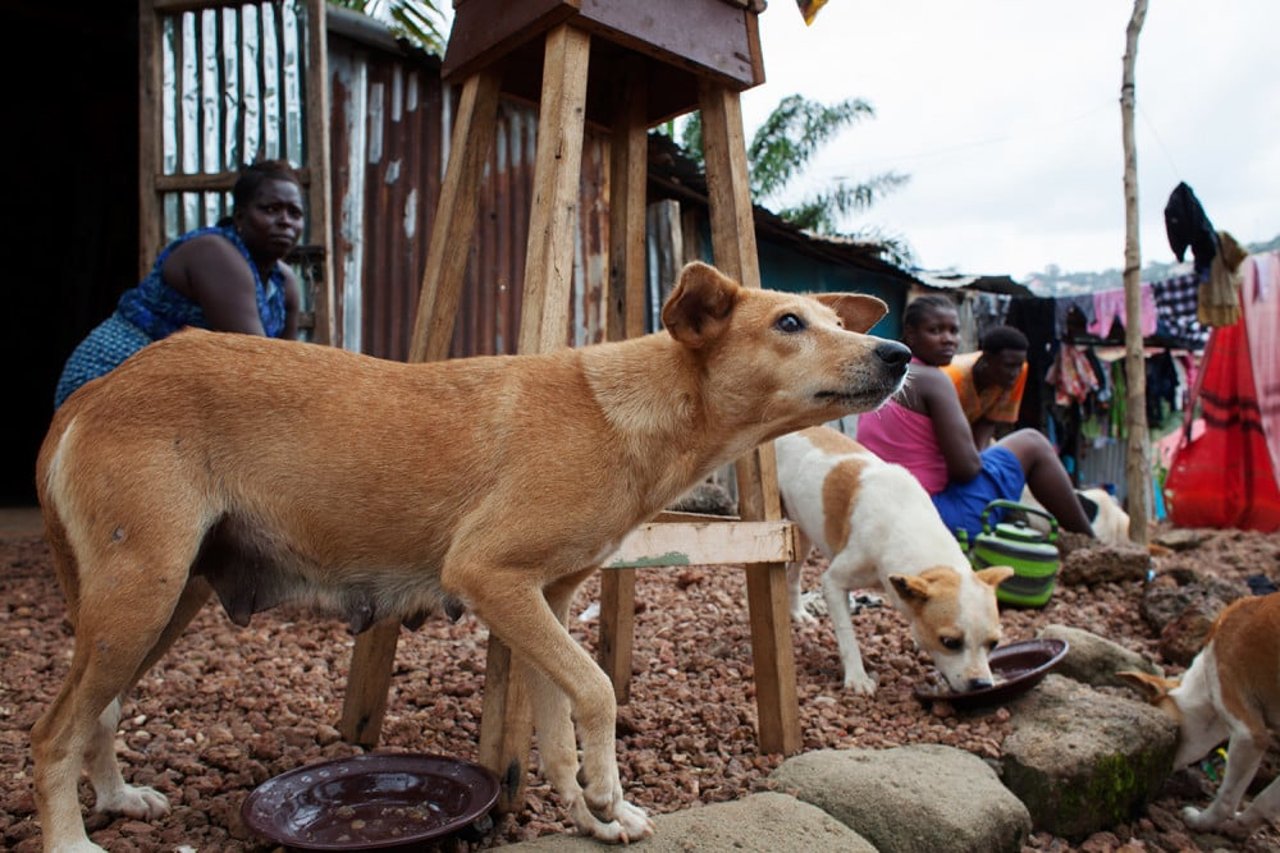
Sierra Leone mudslides leave dogs injured, starving and vulnerable
News
Our vets are providing emergency treatment to help save thousands of stray dogs’ lives and prevent rabies from spreading, working closely with the National Livestock Animal Welfare and Rabies Control Task Force (NLAWRCT)
Thousands of dogs in Freetown, Sierra Leone have been seriously affected by this month’s devastating floods and mudslides. Sadly, the disaster has already killed more than 300 people, and has made around 2,000 families homeless.
We’re working with the NLAWRCT to relieve dogs’ suffering, by organising and leading mobile veterinary response teams and distributing emergency vet kits.
Many of the dogs we’re treating are deeply traumatised, some in shock and injured with broken limbs. Vets in the disaster zone are providing food and medical treatment for the animals. They’re also helping to prevent diseases such as rabies, which is endemic in Sierra Leone.
As well as caring for dogs, we’re also treating pigs and chickens who’ve been left at risk of starvation and exposure to disease. In total, we’re helping 12,700 animals, thanks to donations from our supporters.
Limited number of local vets
As far as we know, Sierra Leone has just four active vets, and supplies of veterinary equipment and medicine is limited. This has left animals in Sierra Leone vulnerable, with thousands of dogs fending for themselves on the streets of Freetown.
Our work with the NLAWRCT is key to helping these animals and the people around them recover.
Tennyson Williams, our Africa office director said: “Before this disaster the stray dog situation was already at breaking point. The terrible mudslides over the last week have turned the situation from bad to worse.
“These dogs are in dire need; injured, starving and at high risk of disease. We’re also very concerned that rabies could begin to spread rapidly. The National Livestock Animal Welfare and Rabies Control Taskforce is doing everything they can to vaccinate as many dogs as possible.”
The team of veterinarians in Freetown are:
• providing immediate assistance to injured animals to meet their basic survival needs,
• providing emergency vet kits which include dressings and treatment for wounded animals, and rabies vaccinations,
• and assessing the wider and longer term needs for the animals in partnership with the government.
Find out more about the work we do protecting animals from disasters.
